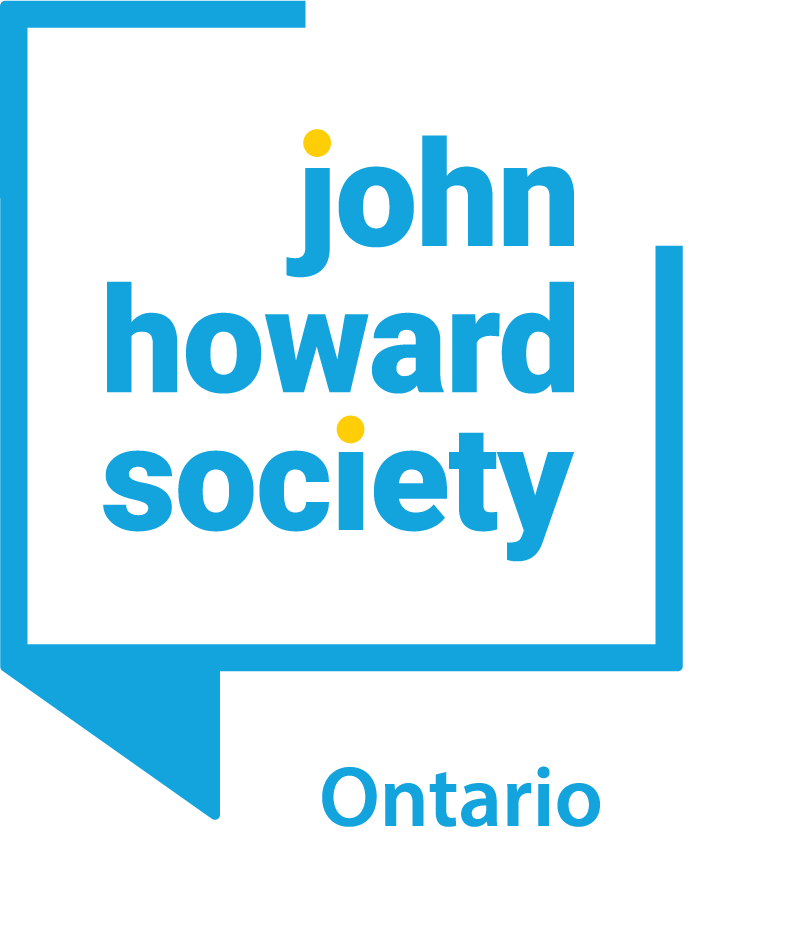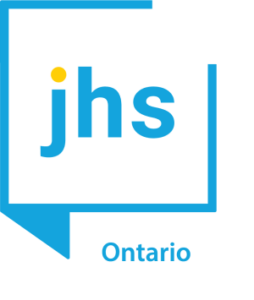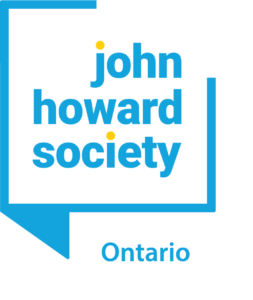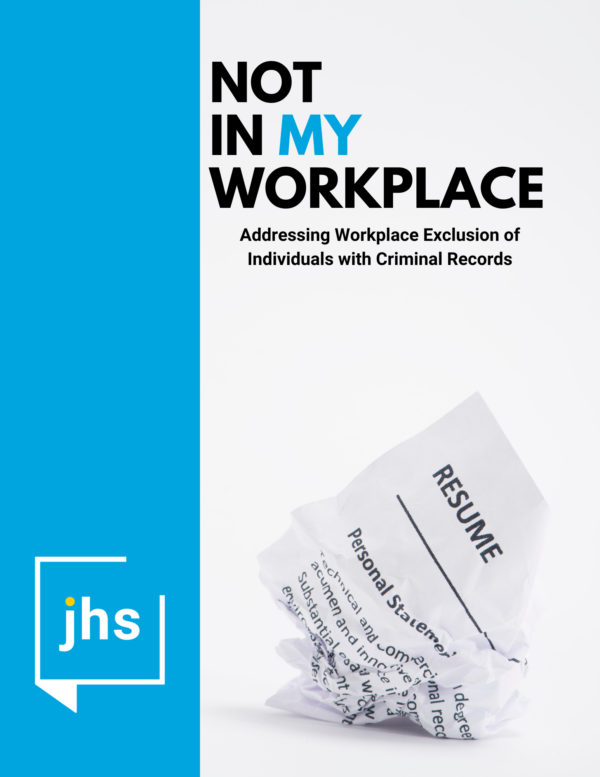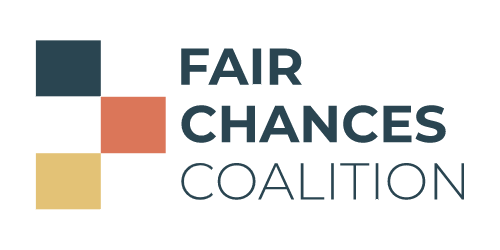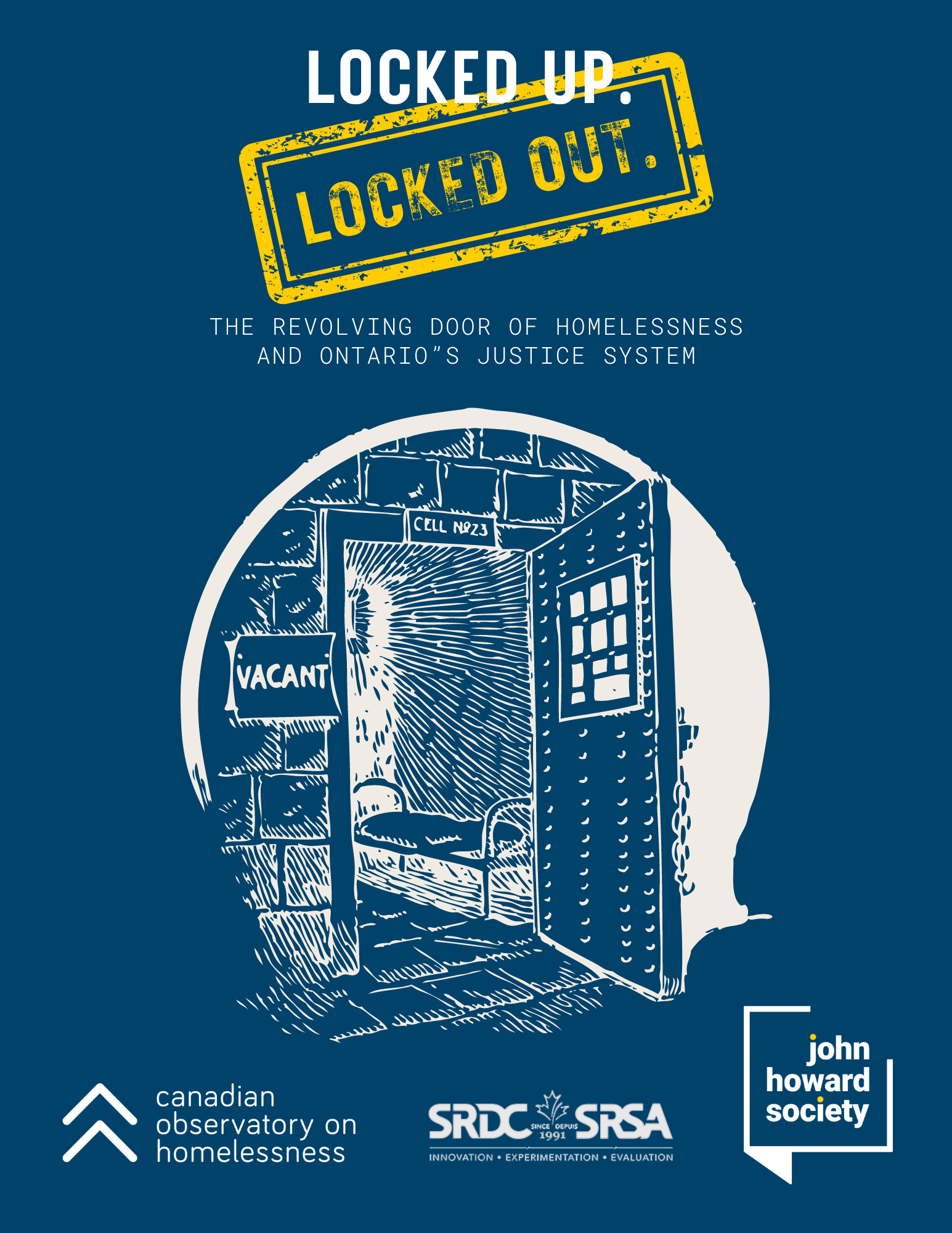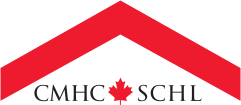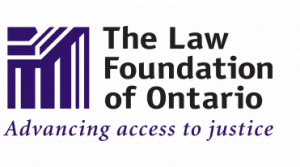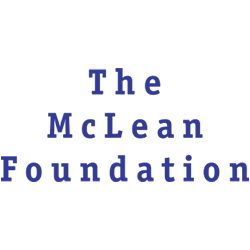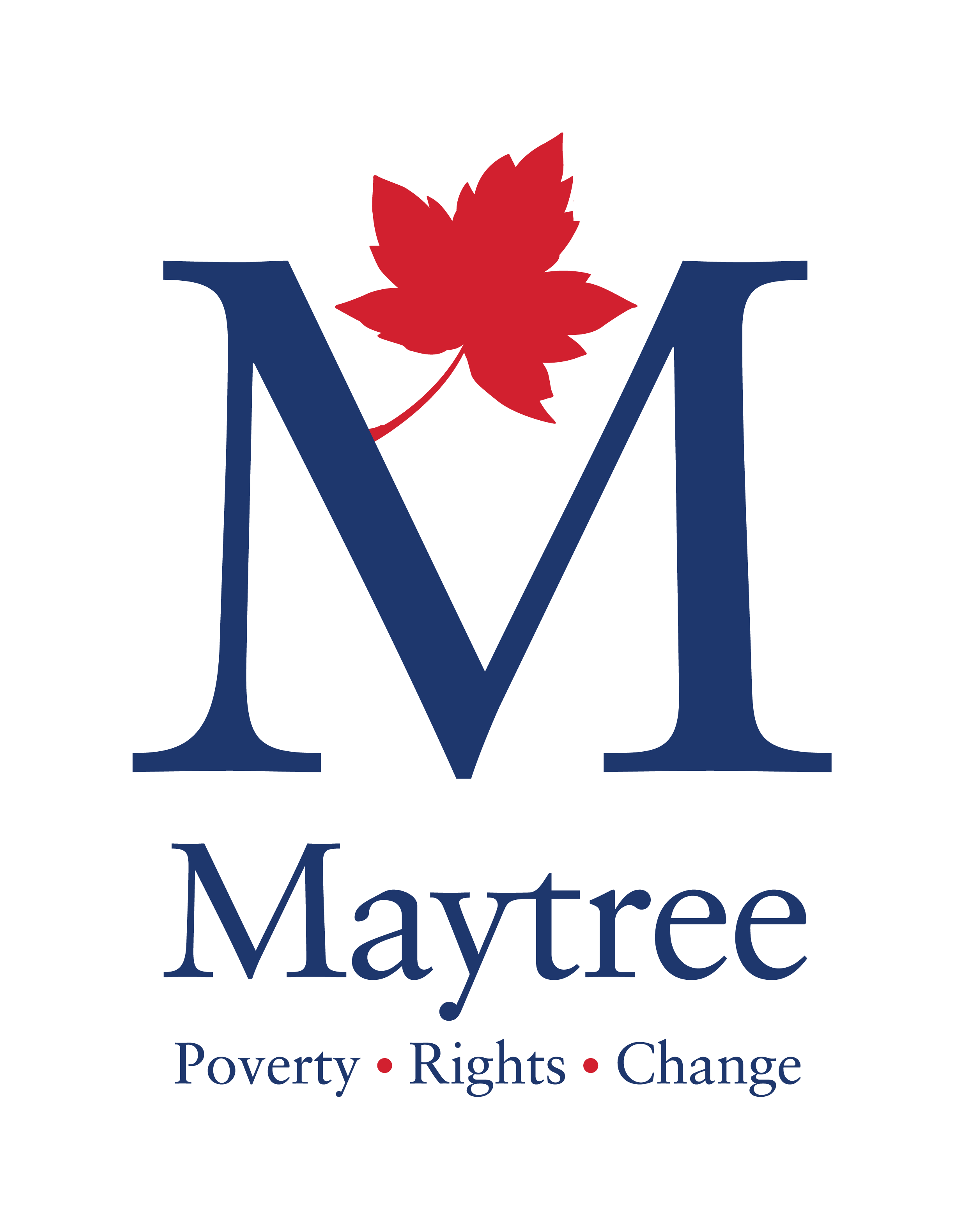OUR MISSION
The John Howard Society of Ontario is dedicated to effective, just and humane responses to crime and its causes.
WHAT WE DO
We promote practical, evidenced-based policies while providing services, programs and education to all those affected by our criminal justice system. This work includes:
- Building bridges between people leaving incarceration and their communities to help them build productive lives.
- Advocating for fair treatment for all incarcerated people in accordance with international standards for human rights.
- Raising awareness of the root causes of crime and calling on Ontarians to share responsibility for addressing them.
- Developing policies, programs, and educational material through our Centre of Research & Policy.

REPORT OF THE PRESIDENT & CEO
Thank you for taking the time to review JHSO’s 2024 Annual Report. We are excited to share the highlights and insights from our past year, along with our strategic vision for the future.
At the heart of JHSO lies a profound commitment to human justice. Guided by our vision, this year we embarked on building a new strategic plan. It will shape our activities in alignment with our core mission of effective, just and humane responses to crime and its causes.
Our new three-year strategic direction comprises three foundational pillars. First, we are focusing on leveraging the collective impact of our local offices across the province, fostering seamless knowledge transfer and enhancing collaborative goal-setting. Second, we are concentrating on building JHSO’s organizational capacity, exploring sustainable resources and prioritizing the well-being and development of our team. Lastly, we are amplifying our impact to drive positive change in the criminal justice sector at a systems level.
Deepening our relationships and working in new ways with our partners serving Black and Indigenous populations, 2SLGBTQIA+ folks, people with disabilities, people who use drugs and other identities that intersect with justice involvement are key priorities of our team. This collaborative approach will help to ensure JHSO’s research, policy and public education work remains relevant, responsive, and informed.
This year we are also excited to be engaging in community-building within our neighbourhood. With support from the City of Toronto’s StreetART initiative, we are proud to be collaborating with neighbours and young emerging artists in our surrounding Regent Park and Moss Park neighbourhoods to develop a community mural on our east wall. Our mural is set to launch in summer 2024.
As we reflect on our organization’s achievements and learnings in the coming pages, we recognize that none of our work would be possible without our incredible team, Board of Directors, volunteers and interns. We are also ever thankful for the donors and funders that allow us to continue making a positive impact on Ontarians. With gratitude and enthusiasm, we look forward to another year of impact in the justice sector and elevating the communities we serve.

Ron Cuthbert
President

Christin Cullen
Chief Executive Officer
EMPLOYMENT & POLICE RECORDS
While JHSO has been researching and advocating for job seekers with criminal records for over a decade, this last year, we focused our efforts on understanding the hiring climate among Canadian employers and the labour market prospects for job seekers with records. Through our new research, outlined in our report, Not In My Workplace: Addressing Workplace Exclusion of Individuals with Criminal Records, we learned that many Canadian employers continue to discriminate against qualified candidates based on the presence of a criminal record, despite historic labour shortages. In fact, many Canadian employers automatically exclude these job seekers, without any further assessment of the type of record they have or the circumstances in which they obtained it. Our research received widespread media coverage, sparking discussions and raising awareness about the importance of employment opportunities for someone looking to rebuild their life. It was shared across a total of 20 media platforms, news broadcasts, and articles.
This research emphasized the urgency of the work of our Fair Chances Coalition, which continues to generate awareness and catalyze change among HR departments and corporate culture in Canada. Thanks to generous ongoing support of the Metcalf Foundation, and new funding from the Workforce Funder Collaborative, in the last year, we added 5 new members to the Coalition, hosted over 10 educational events to generate awareness around fair chances, and reached hundreds of employers and employment service agencies to promote inclusivity for Canadians with criminal records. This work is crucial to increasing employment opportunities for these Canadians, ultimately helping them avoid a lifetime of poverty and marginalization.
REINTEGRATION
JHSO has continued to advocate for and collaborate with partners to improve reintegration practices in Ontario. This year, we have focused our efforts on several key initiatives.
We have continued to support the development and expansion of the Systems Navigator and Mental Health and Addictions Peer Support programs at our offices in Toronto, Peel and York Region. These initiatives provide tailored support, helping individuals navigate the complex landscape of reintegration and access essential services.
In addition, we have launched a new reintegration project with McMaster University through the Mitacs Fellowship Grant and participated in the largest study on reintegration in Canada, led by Dr. Sandra Bucerius and Dr. Luca Berardi. Our involvement in this innovative research has positioned us to explore ways to expand this project within Ontario.
Further, JHSO continues to collaborate as a key stakeholder with the Human Services and Justice Coordinating Committee and the Ministry of Solicitor General on the Community Reintegration Planning Tables, ensuring that our community’s voices are heard in policy development.
On a federal level, our work with partners at Public Safety Canada and Infrastructure Canada supports the federal framework for reducing recidivism, ensuring that Ontario’s justice-related issues are considered within this broader context. These efforts highlight the importance of our ongoing advocacy and the need for expanded support systems to help justice-involved individuals successfully reintegrate into society.
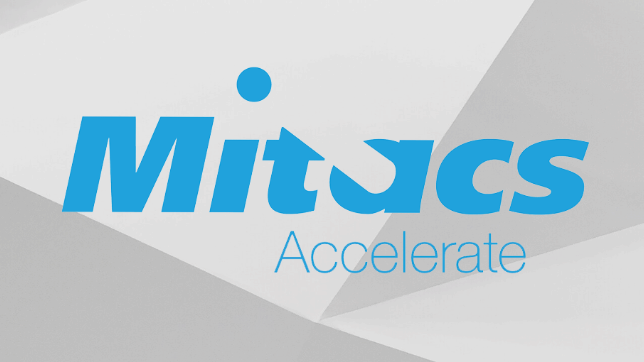
Mitacs Accelerate Fellowship
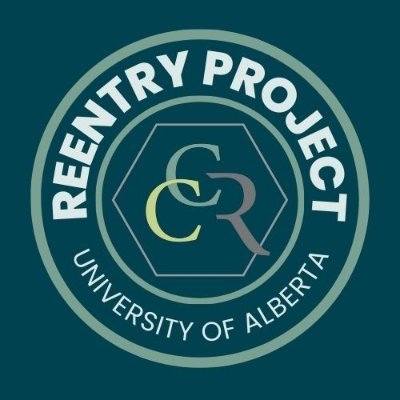
University of Alberta’s Prison Project
HOUSING
JHSO has long recognized the importance of housing to successful reintegration. Two years ago, JHSO released the No Fixed Address report, which provided a novel analysis of admissions data for people entering provincial corrections. Our findings highlighted the growing number of admissions to provincial corrections with no fixed address.
Over the past year, we have spoken to people with lived experience of homelessness and justice system involvement and service providers to ground that quantitative analysis in an understanding of the barriers to accessing housing across Ontario and opportunities to improve housing outcomes for justice involved populations. What we learned from this research is that justice system involvement and experiences of incarceration cause and perpetuate homelessness, and people exiting corrections are in need of immediate housing supports, wraparound services and navigation services to promote successful reintegration. This points to an important conclusion; that given their unique needs and challenges, dedicated housing for justice involved people is crucial.
Over the next few months, the public report Locked Up. Locked Out will be released detailing the qualitative findings from the sample of 123 surveys and 52 interviews. Building on this research, and with the generous support of the Maytree Foundation, JHSO’s work is also underway on a project to introduce policy solutions and guidelines on housing for justice involved people to ensure strategies to promote affordable, supportive housing are inclusive of the unique needs of justice involved populations. Through these research and policy initiatives, JHSO is helping to make sure Ontarians exiting corrections are able to access safe, accessible housing and break free from the revolving door of homelessness and justice system involvement.
MEDIA
Over the past year JHSO successfully drove the public narrative through our social media platforms and earned media in print, digital and radio.
The launch of our report Not in My Workplace in early 2024 and the resulting media campaign was extremely successful, getting syndicated coverage in CBC radio interviews across the entire country, and an exclusive feature by Mike Crawley in CBC News that was featured on TV and online news, and was one of the most-read CBC news stories nationally on the day of release. Coverage of our report and its findings also ran in local CTV outlets, MSN, Toronto Sun and even internationally through a Reuters story.
LOOKING AHEAD
Overview/Intro
As we look towards the next year at JHSO, we are focused on increasing our impact in digital spaces. From our data collection efforts to our resource and knowledge dissemination, we are focusing our efforts on modernizing the ways we learn and communicate throughout the JHS network, with our stakeholders, and with the community.
Client Case Management System
As we continue to ensure programs and services at the John Howard Society local offices are evidence based and data informed, JHSO is spearheading the implementation of a robust client management system across several local offices. The client management system will allow local JHS offices to standardize the collection of client and program data. In addition, it allows JHSO to demonstrate collective impact across the province. We will be working closely with Vitalhubs CaseWORKS software over the next 12 months on the implementation of the software.
Learning Hub 2.0
Later this year, JHSO will be working to broaden the scope of free legal information available on the JHS Learning Hub and reach new justice system actors across Ontario in the process. By the end of 2024, we hope to revitalize our JHS Learning Hub to allow for not only community service providers working with justice-involved clients, but also lawyers and the clients themselves to access more information about the collateral consequences of justice system involvement. New training modules will be released focused on the unique experiences of Black and Indigenous populations in the justice system, including the unique barriers and compounding civil legal issues that can stem from criminal justice involvement. We will also be looking to support legal counsel, particularly duty counsel, with quick and easy to use resources designed to avoid the escalation of the collateral consequences of justice involvement.
Training Page/Hub Launch
As we modernize and digitize our data collection and resource dissemination, we’re also looking to digitize how we share knowledge gained from our collective experience, research and evaluation. In 2024, JHSO will be launching a new training hub that will have curated, evergreen training courses available for purchase. This training will reflect the training JHSO and our JHS network of local offices already offer, but will be accessible online, available at the learner’s discretion, and provide certification for professional development.

OUR PEOPLE
EXECUTIVE COMMITEE
Ron Cuthbert | Chair
Rob MacLellan | Vice-Chair
Hermon Mayers | Treasurer
Christina Ninham | Secretary
Jean LeDrew-Metcalfe | Executive Committee Member-at-large
Trisha Simpson | Executive Committee Member-at-large
Jennifer Rooke| Executive Committee Member-at-large
Bruce Simpson | Past President
DIRECTORS
Jill Evans
Peter Stephenson
Tom Hickey
David Williams
Steve Scriven
Hamza Khalid
Tara MacPherson
Ayesha Zubair
Pauline Wainwright
Dan Smith
Michael Sabo
Sandy Lychowyd
Madalene Chiarotto
Bob McMenemy
Maxine Carter
Chris Fleury
RESEARCH ETHICS BOARD
Nathan Innocente | Chair
Lisa Whittingham
Kemi S. Anazodo
Jessica Sutherland
Marsha Rampersaud
Lesley Zannella
STAFF
Christin Cullen | Chief Executive Officer
Maureen Zuniga | Director of HR & Administration
Bradley Marr | Director of Finance
Reza Ahmadi | Director of Research & Evaluation
Jacqueline Tasca | Director of Partnerships & Strategic Initiatives
Safiyah Husein | Director of Policy
Meaghan Costa | Research and Evaluation Specialist
Aileen Simon | Education & Strategic Initiatives Coordinator
Hannah Cook | Research & Evaluation Analyst
Capryce Taylor | Junior Policy Analyst
Alysha McDonald | Mitacs Fellow
A huge thank you to our dedicated volunteers and interns, without whom our work would not be possible: Alia, Marisa, Emma, Hannah, Edward, Brittany, Jamie, Ashley, Joey, Madison, Mitchell, Taylor, Rhea, Hannah Z, Tatum, Auria, Jasleen, and Grace.
Congratulations to Emma Jewell for winning our 2023 Volunteer of the Year Award.
2023 REVENUE & EXPENDITURES
REVENUE $1,929,941
EXPENDITURES $1,848,317
Complete audited financial statements are available at www.johnhoward.on.ca or upon request
2022 FUNDRAISING
DONORS
We are very grateful for the support of our generous donors. We have not listed names in order to protect confidentiality, but wish to thank each and every one of our supporters. Donors make it possible for us to work towards effective, just, and humane responses to crime and its causes. THANK YOU.
FUNDERS & SUPPORTERS
We are pleased to acknowledge the following funders and collaborators. Your generous support is vital to our work and we thank you for your support and belief in our mission.
